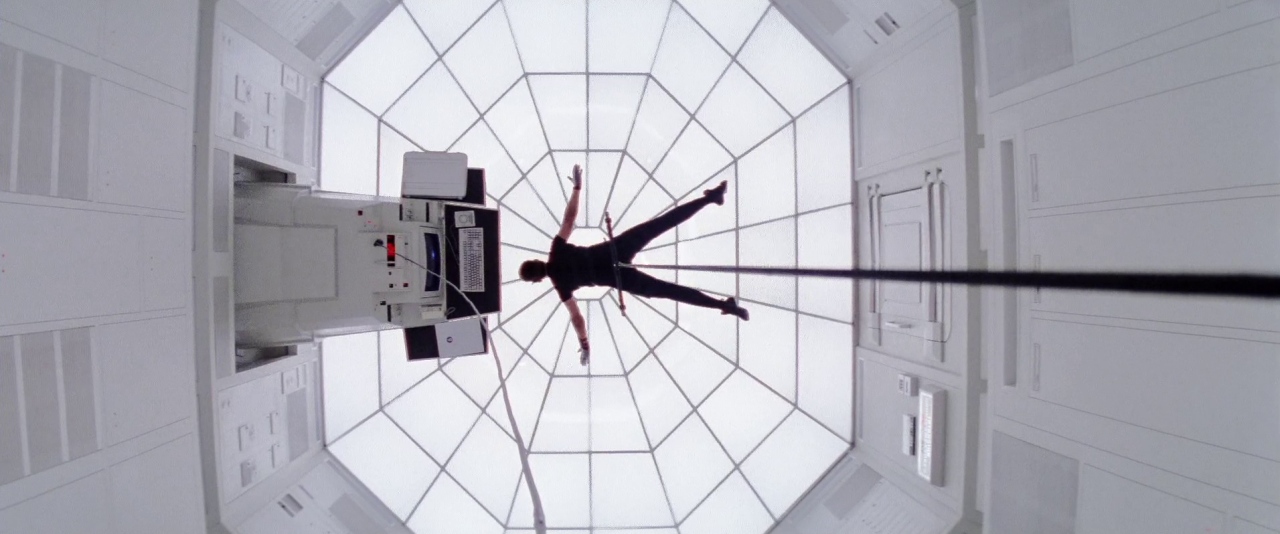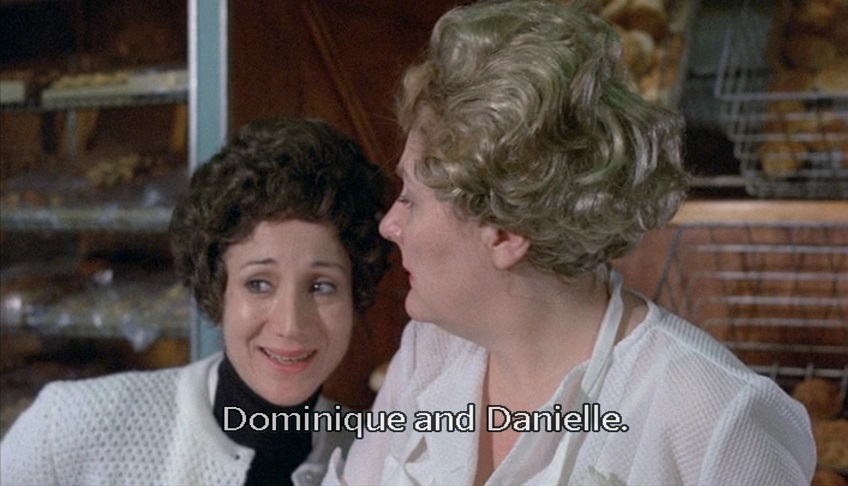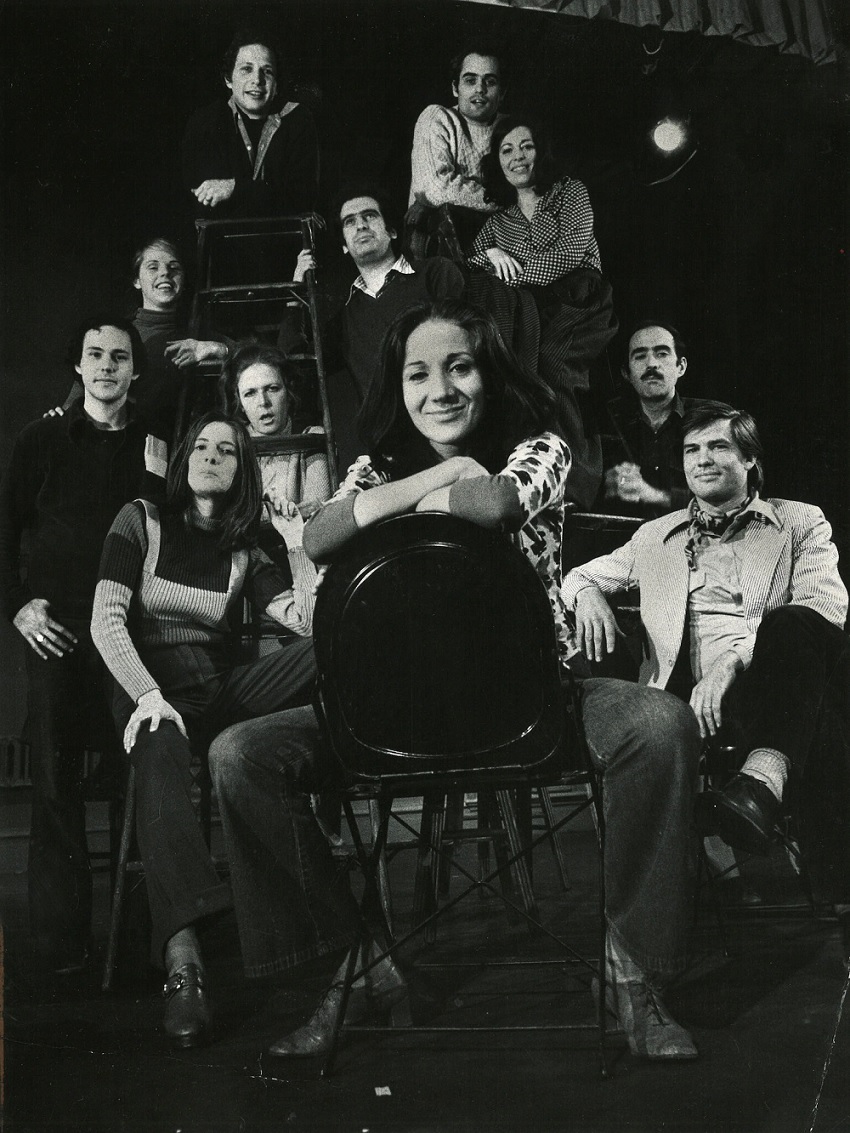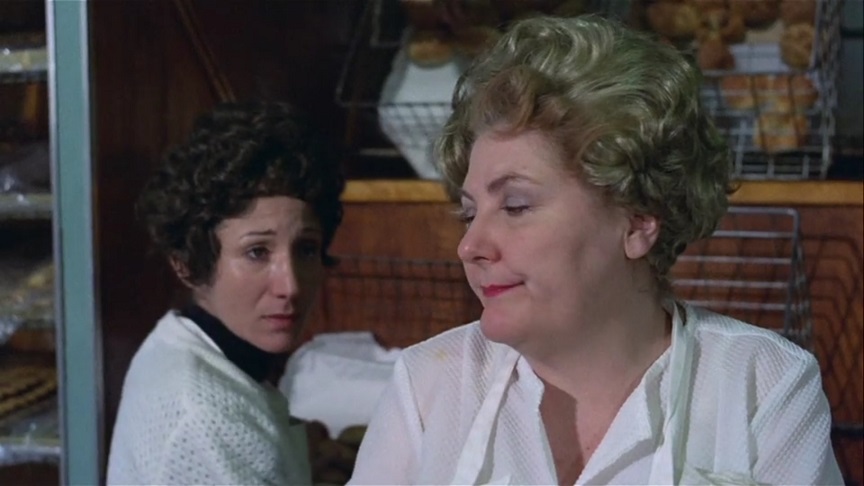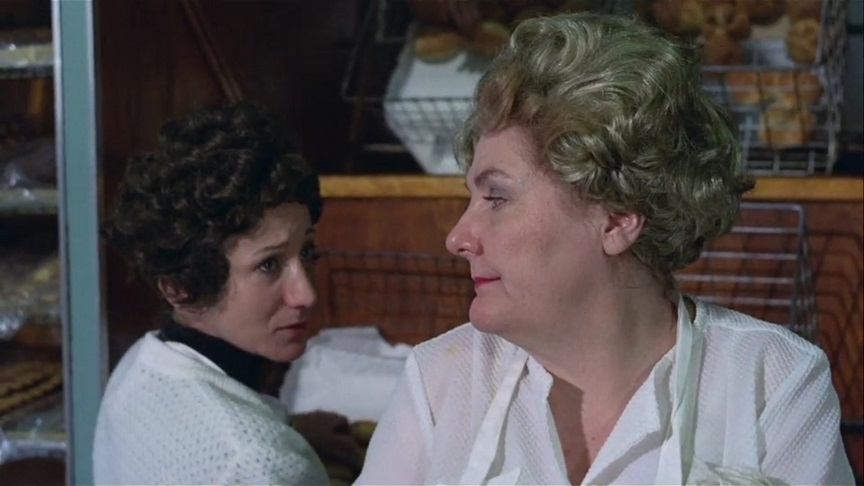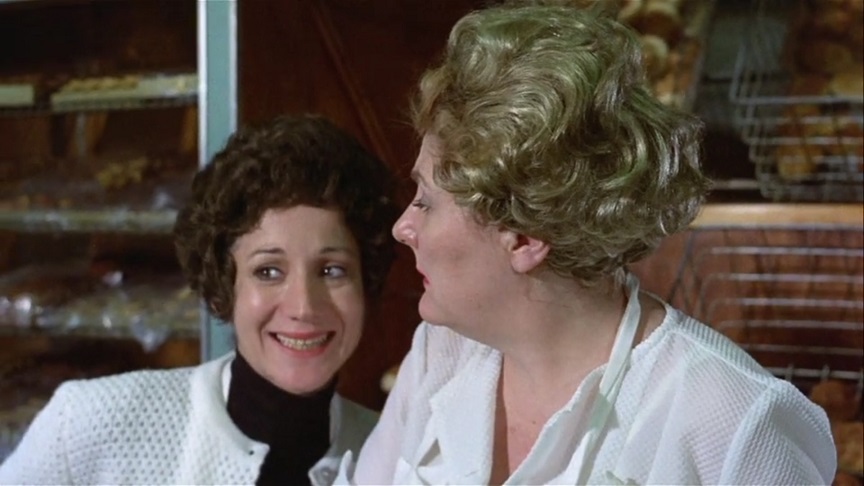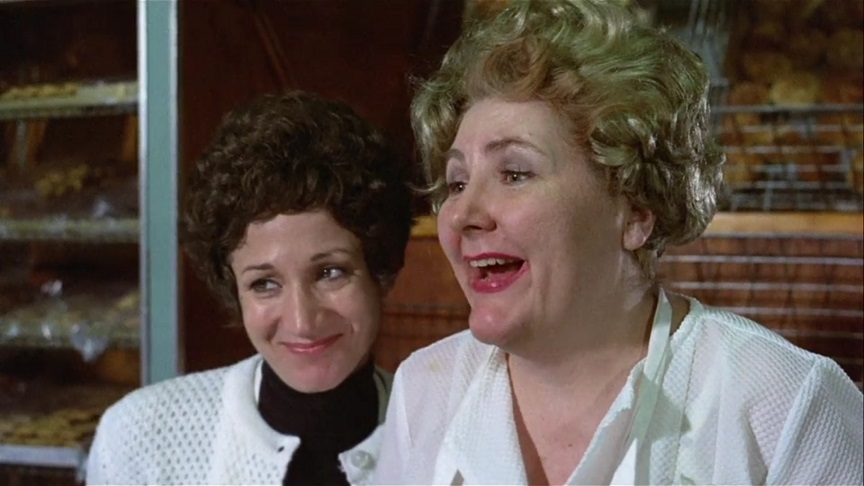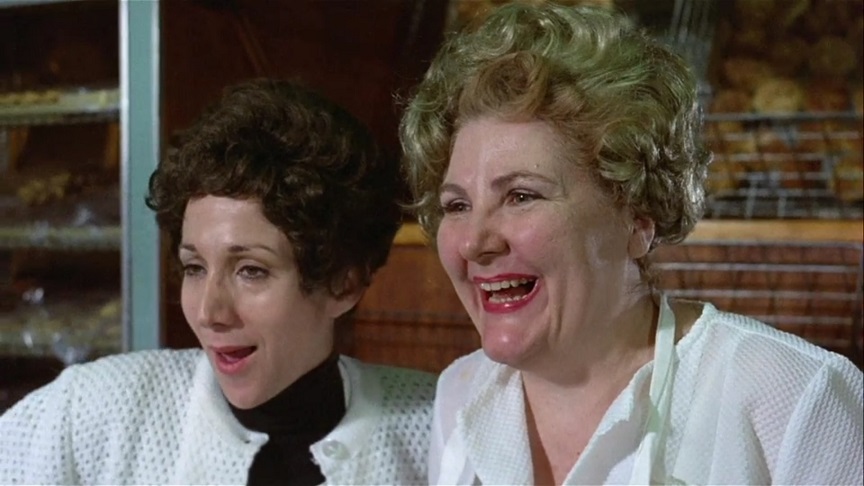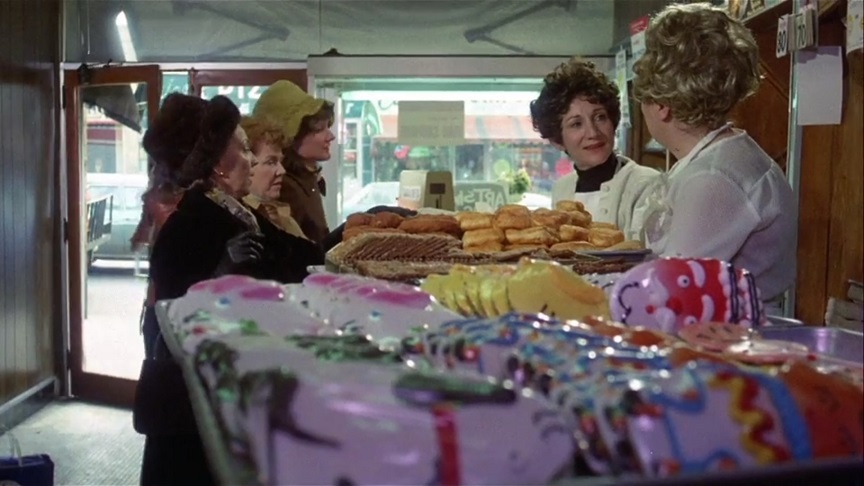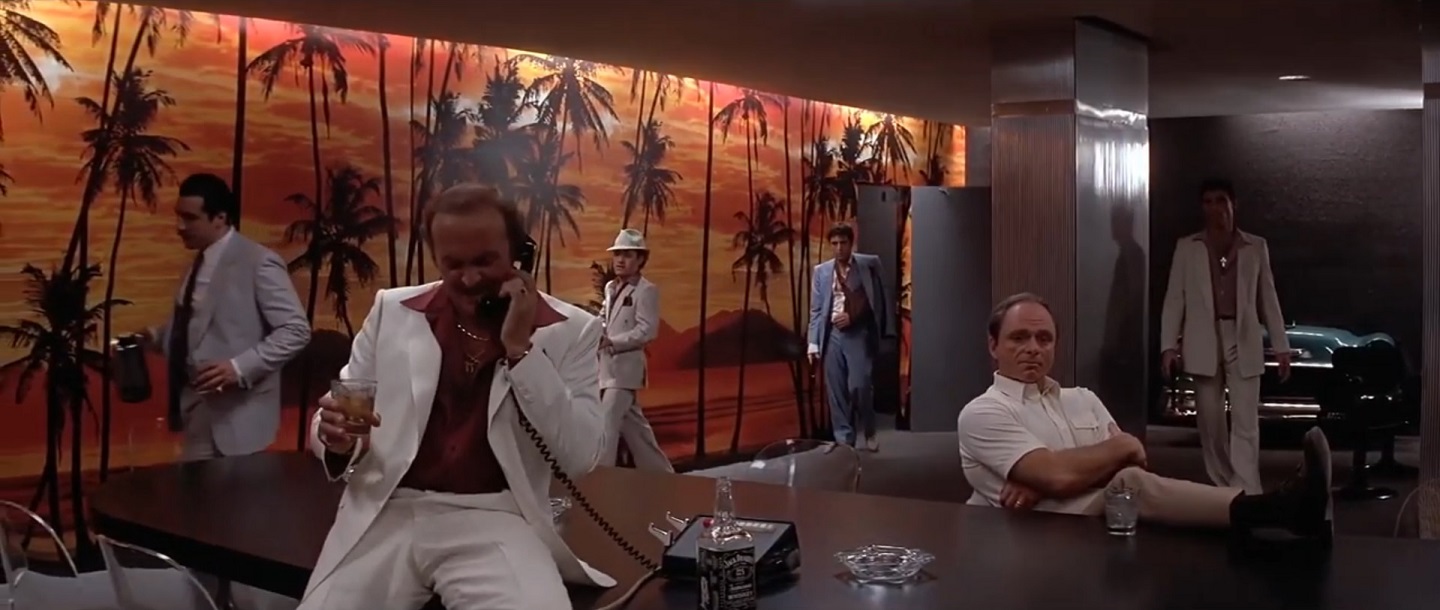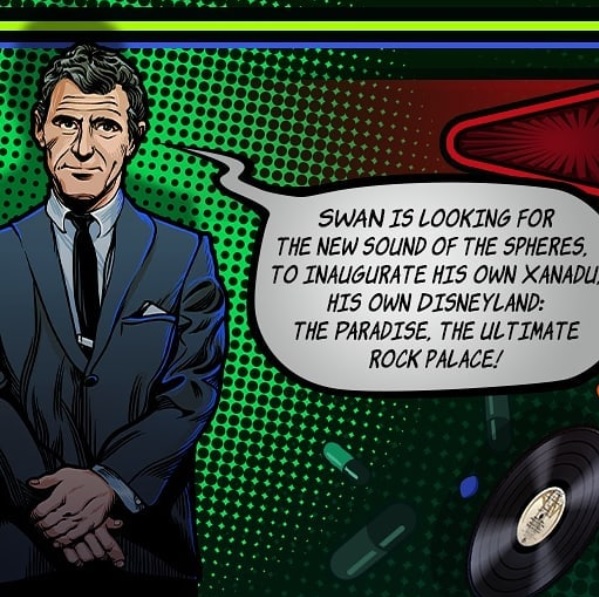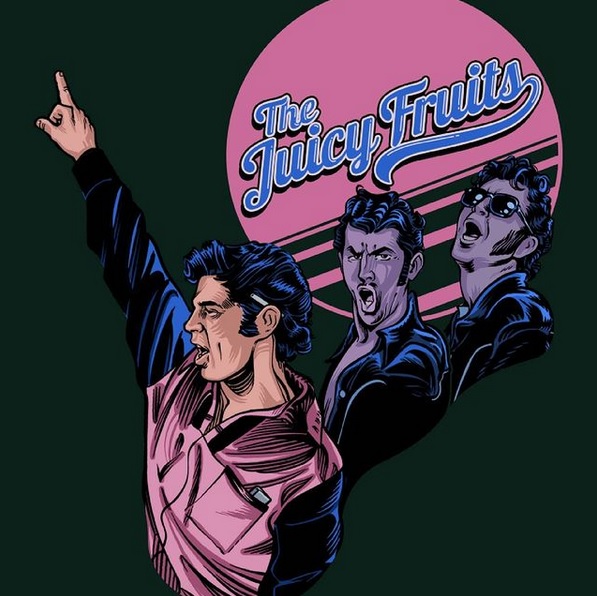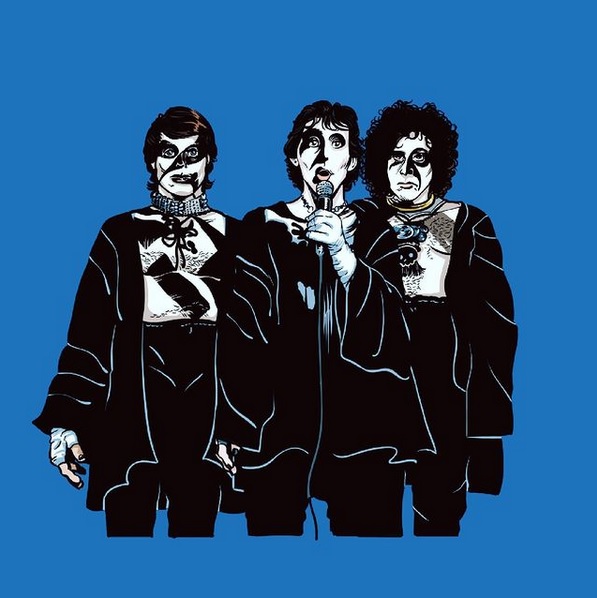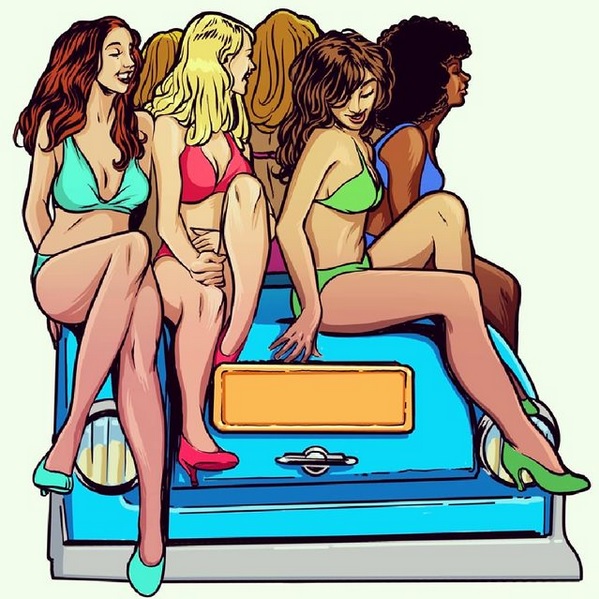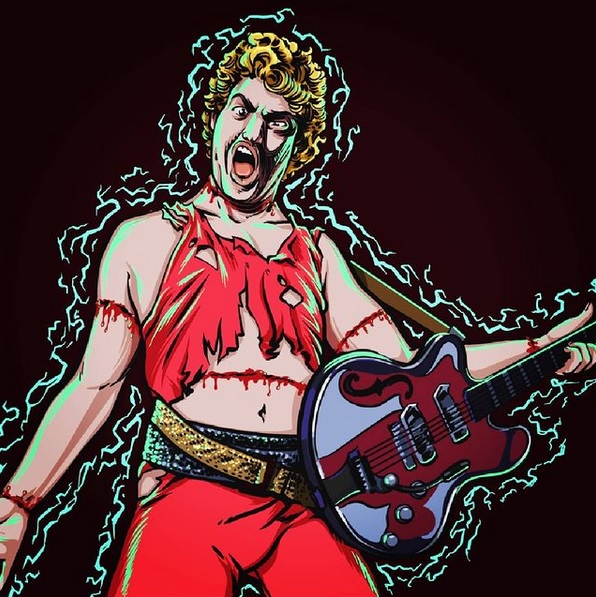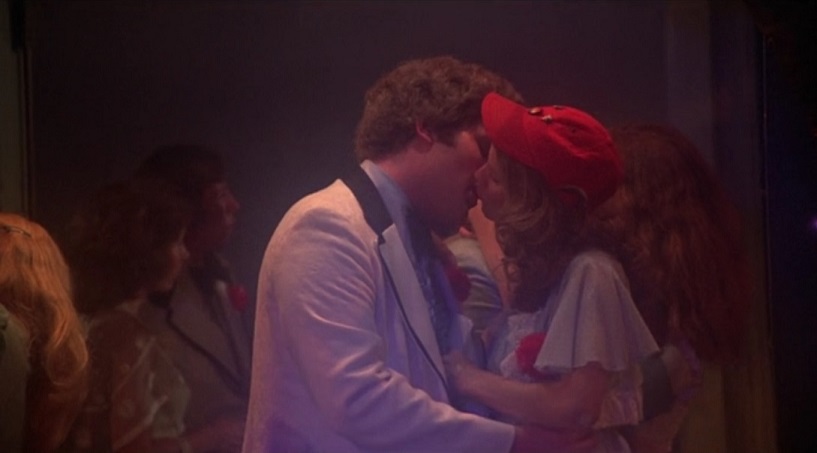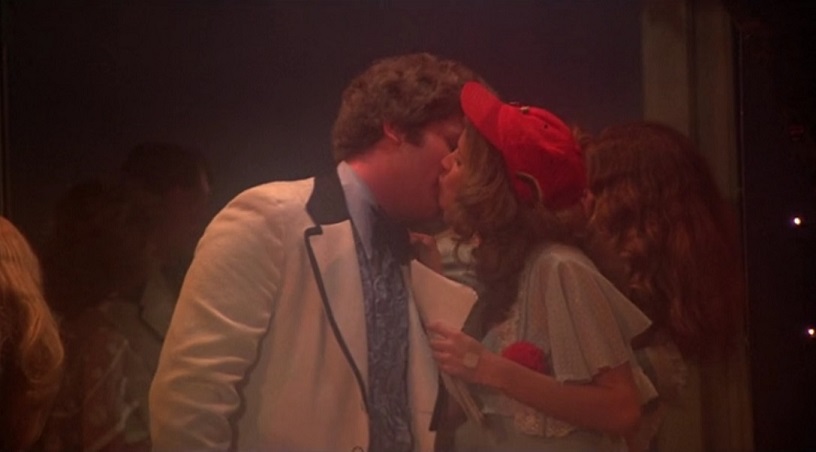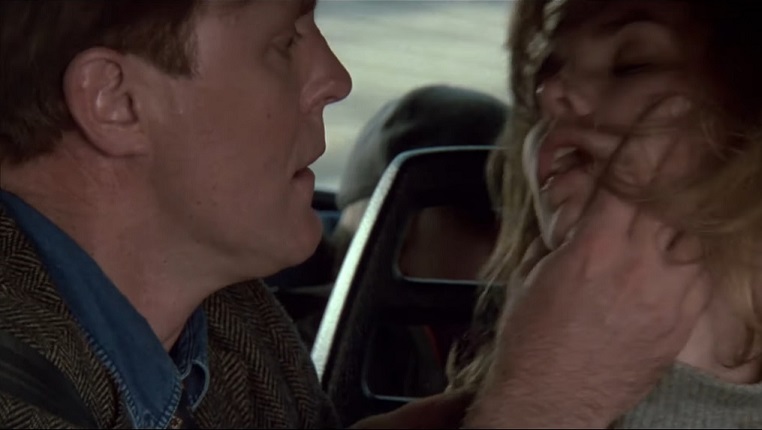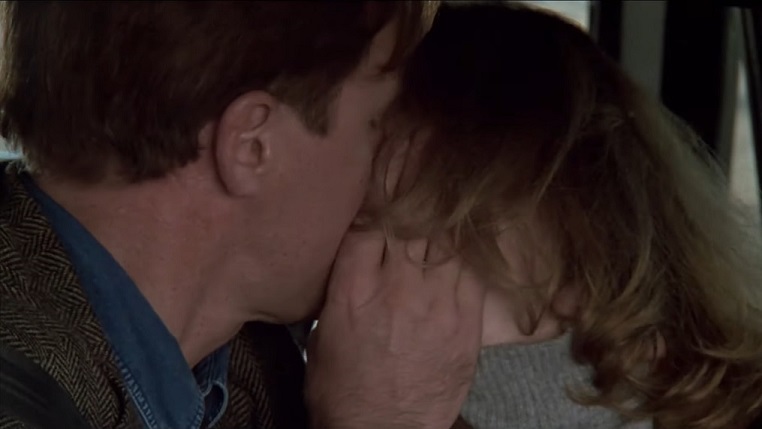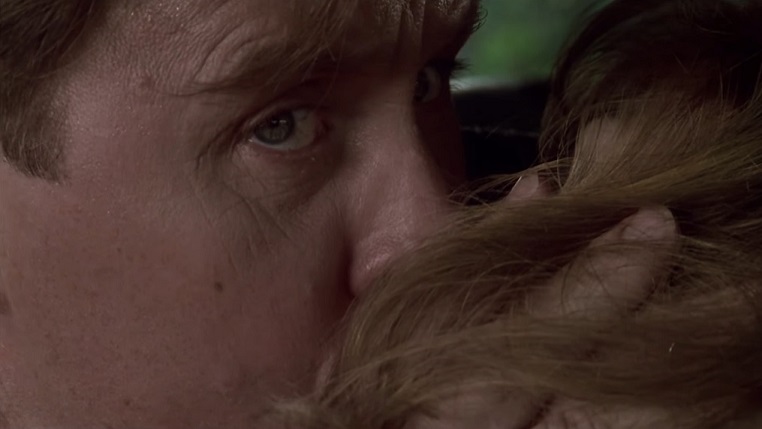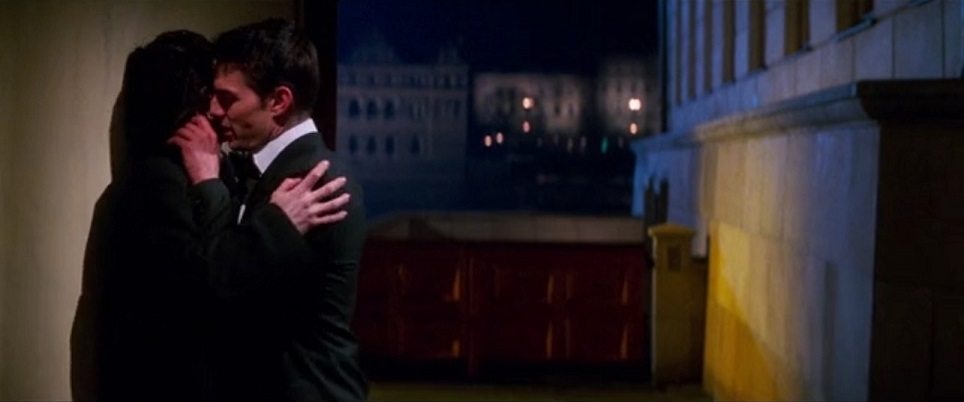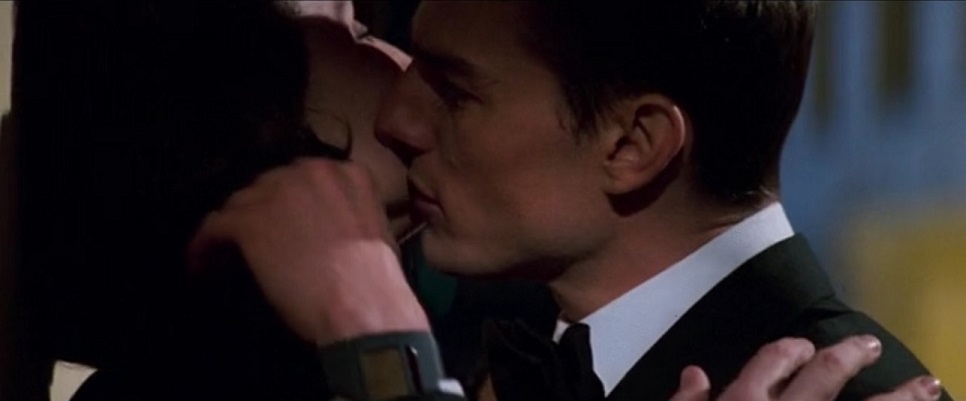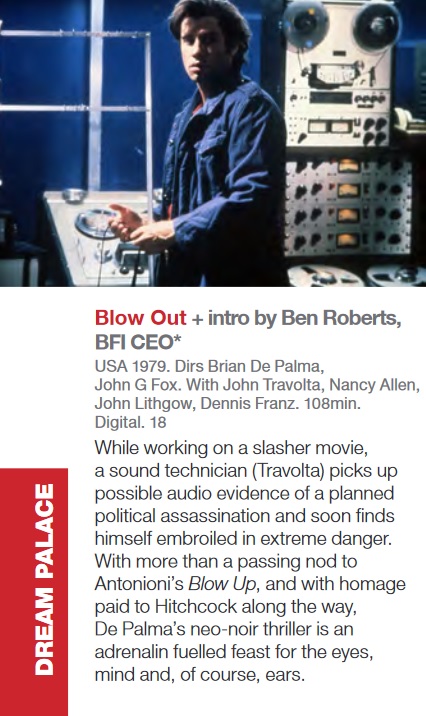AND CHRIS HEWITT INCLUDES MARGARET WHITE IN LIST OF "7 BEST MOVIE MOMS"...
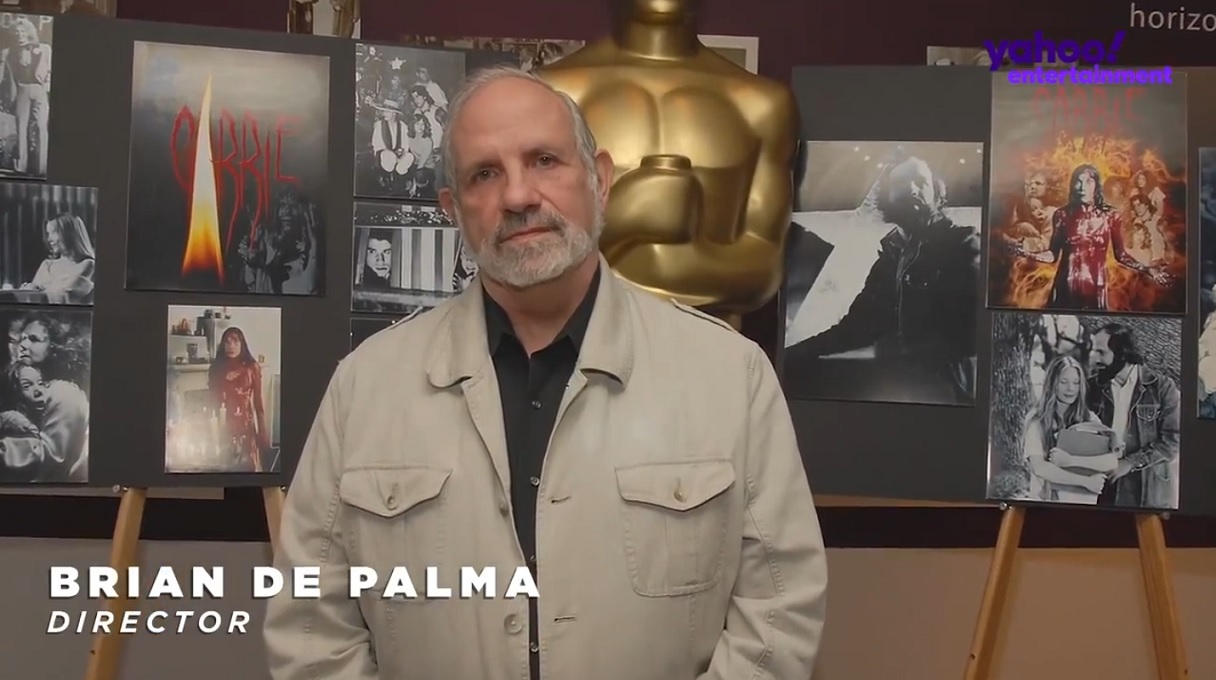
There is oddly no mention at all of Blow Out, but thanks to Rado for sending along this 10-minute-long Yahoo! Entertainment on Facebook Watch video from February of 2020, in which John Travolta recalls some of the significant roles from his career.
"What I remember about it is, it was fun to be on that set," Travolta says in the video, in regards to Brian De Palma's Carrie. "I didn't realize how significant that movie was going to be. Because not only, it got two Oscar nominations, and became a contender in history for maybe one of the better horror pictures ever made. It launched me, but it satisfied a lot of film history. This was a movie where, not unlike Grease, it was just a bunch of young, new actors, that were joining some thoroughbreds, and having at it. You know, and De Palma at the helm, and all for, all about fun. So, I think Carrie was an important movie on many levels, for sure. And the movie was a far more well-made movie than I had anticipated it would be. You know, it became an instant classic."
Meanwhile, the Star Tribune's Chris Hewitt includes Margaret White in his list of "7 best movie moms"...
In an homage to another scary movie mother, "Psycho," teenage Carrie (Sissy Spacek) attends Bates High School. She's bullied there but things are worse at home, where her zealot mother (Piper Laurie) terrorizes her. Laurie is brilliant in Brian De Palma's thriller because it's clear this unstable mom believes she's doing her job — protecting her daughter.
And one more article appeared this week about Carrie:
As any Stephen King fan can attest, it’s a pretty magical thing to see the Master of Horror’s work properly realized on the big screen, and Brian De Palma’s Carrie, even more than 40 years after its original release, is not just still excellent, but reigns as one of the all-time great King adaptations. It locks into the disturbing heart of the seminal novel, making you feel every ounce of its protagonist’s pain, and burns images into your brain with its legendary third act – from the site of Carrie on stage drenched in pig’s blood, to the slamming doors, to people being burned, electrocuted, and crushed. No CGI required; just simple, practical effects, and it leaves an everlasting impression.While it was made with a nothing budget, the film is visually spectacular, with cinematography that is both smart and stunning, and editing that is striking (the use of split-screen in the climax is a brilliant stroke, as you only feel more enveloped in the chaos as your eyes dart back and forth across the screen). The movie is most famous for its chaos, such as the brilliant hand-held camerawork as Carrie emerges from the gym showers desperate for help from any of her peers, but aesthetically it’s also gorgeous and poetic, with striking moments including Carrie being relegated to the background in an early classroom scene, her literally thunderous confrontation with her mother, and Margaret’s dead body holding the same position as the St. Sebastian statue in the prayer closet.
Not exactly being an epic (of which Stephen King has written many), the real power of the material comes from its characters, and the performances delivered by Sissy Spacek and Piper Laurie are still flooring. Laurie’s Margaret remains one of cinema’s great psychologically terrifying villains, driven to pure madness by her zealotry, and Spacek both breaks your heart and sends chills down your spine when she reaches her breaking point. The movie doesn’t have the capacity to give the audience the full access to the Whites that the book does – for example, deeper insight into Margaret’s religion-driven psychosis, the story of how Carrie was conceived, and incidents from the girl’s childhood – but thanks to the actors’ genius turns you can perfectly read and understand their damage and pain as though it were psychically communicated.
It may not be traditionally frightening, and probably won’t induce nightmares in modern audiences, but Carrie remains haunting and affecting. Combined with its incredible significance in the history of Stephen King adaptations, it’s notably impossible not to put it on a pedestal, but that’s also exactly where it deserves to be. It’s a deeply dark and disturbing story as the author originally wrote it, and while the film presents a very different experience, it’s a masterclass in cinematic horror.




